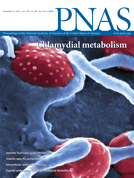 In 2012, news media were abuzz with a new finding from PNAS: Authors based in Israel had found evidence that our brains can unconsciously process more than we thought — including basic math and reading. In other words, the authors claimed people could read and do math without even knowing what they were doing.
In 2012, news media were abuzz with a new finding from PNAS: Authors based in Israel had found evidence that our brains can unconsciously process more than we thought — including basic math and reading. In other words, the authors claimed people could read and do math without even knowing what they were doing.
With such a major development in the field of consciousness research, other groups quickly got to work trying to replicate the findings. Those efforts have taken some twists and turns — including a recent retraction of a replication paper that was, itself, not reproducible (which is not something we see every day). But overall, five years after the initial, remarkable result, the replication efforts are calling it into question.
According to Pieter Moors at KU Leuven, a researcher in this field:



